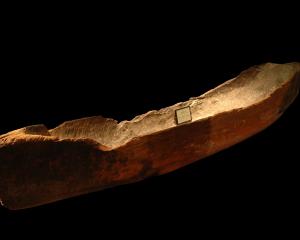
He had shown an aptitude for music at a young age and learned piano when he was 6.
He left his home in London when he was about 13 and began performing at venues throughout the south of England. As a 16-year-old, he headed for South Africa and spent time working on an ostrich farm.
He returned to England almost two years later after a hunting accident, which resulted in him losing an eye and left a bullet permanently lodged in his skull.
Back in England, Sidney studied music at the Royal Academy and began a career as a conductor and music teacher. A second accident, a broken leg suffered after leaping over a flower bed, left him with a slight limp. This did not quell the young man's wanderlust and, in 1880, he left England for New Zealand.

Sidney married Mabel Bell in Dunedin in 1881, but the marriage ended after Mabel had an affair, which resulted in a divorce being granted in 1888.
Having settled in Timaru in 1886, Sidney spent 10 years as bandmaster of the Timaru Garrison Band, before resigning to join the Timaru Navals.
In 1902, he and his second wife, Florence, began planning to move to Dunedin. However, Florence died suddenly a few weeks before their planned departure and when Sidney relocated in January 1903, it was a move he undertook alone.
In Dunedin, Sidney Wolf became the driving force behind the Dunedin choral and operatic societies. He was a much-valued church organist and choirmaster and a highly regarded music teacher.
He is also remembered for having invented and patented a kit to aid music teachers. Known as Wolf's Music Time Blocks, the device used different-sized blocks to represent the length of musical notes and rests, avoiding the need to remember complicated terms such as semibreve and so on.
A company to introduce the system to the world was formed in Dunedin in 1910.
With his health deteriorating, two concerts were planned in Sidney Wolf's honour in 1922, however he passed away in the early hours of the morning on the day of the second concert.
The announcement of his death was only made after the performance. He was survived by his third wife, Ethel, whom he had married in Dunedin in 1909.
Peter Read is a curator at Toitu Otago Settlers Museum.












